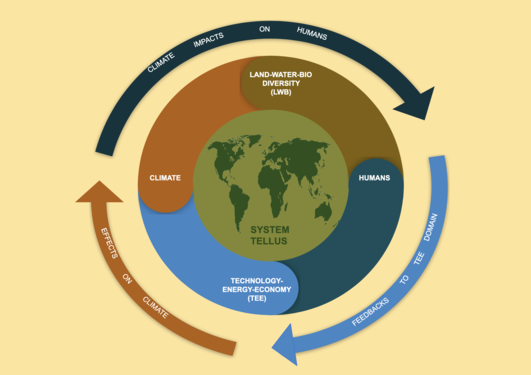Towards a Post-Normal Integrated Assessment Modelling Praxis to Democratise Climate Policy Response
In my PhD project, I seek to advance a methodological framework for integrated assessment modelling that narrows the gap between modellers/scientists and model users/real people, beyond the science-policy nexus.

Main content
Integrated assessment models (IAMs) and modelling have come under scrutiny by scholars and the wider public alike, resulting in contentious debates and crises of legitimacy. For instance, mainstream IAM modelling has been charged as a “black-box” praxis that cloaks several system uncertainties, yet has achieved the status of taken-for-granted “truths” in climate policy response. The tight coupling of IAMs with policy, in turn, plays a performative function in framing mainstream discourse around climate mitigation and enabling the IAM community to play the role of gatekeeper. To mitigate this phenomenon and, as a result, re-build trust in IAMs and its outputs, then the performative function has to be disrupted.
My PhD project seeks to disrupt the status quo and democratise climate policy response by embracing the divergent perspectives and priorities of various stakeholders beyond the science-policy nexus. This involves advancing and refining a new methodological framework for the integrated assessment modelling process to navigate the challenging balancing act of engagements and the corollary trade-offs, synergies, and spillovers. To that end, I will deploy and test the efficacy of various tools from the post-normal science and system dynamics approaches as building blocks of that framework, including participatory modelling, collaborative knowledge quality assessments, and model-based interactive learning environments. My project, thus, contributes to shifting the needle in contemporary IAM modelling praxis to narrow the gap between modellers/scientists and model users/real people, and by extension, make IAMs more credible and accessible for real people beyond the science-policy nexus.
I am carrying out my PhD research within the larger EU Horizon Europe project, WorldTrans: Transparent Assessment for Real People. A key output of this project is the development of a new IAM that addresses the weaknesses of existing ones. I am involved in developing parts of the IAM model structure as well as designing and implementing various participatory modelling and stakeholder engagement processes – a fertile ground for my PhD work.
Supervisor: Birgit Kopainsky | Co-Supervisor: Scott Bremer

